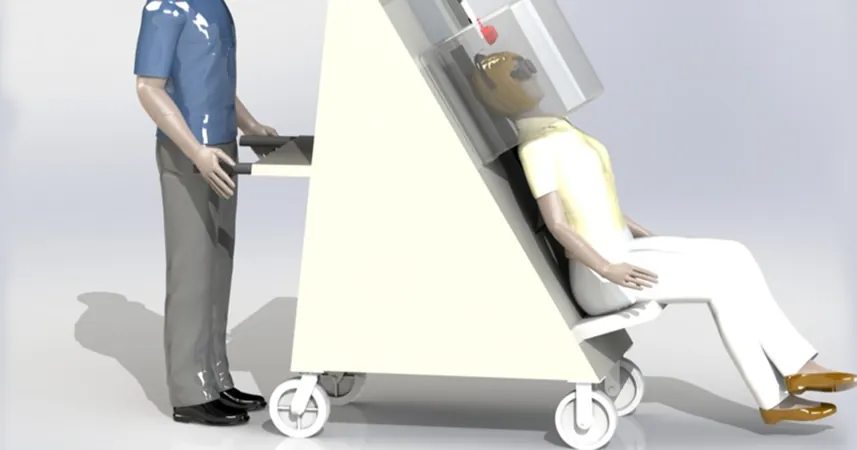
Groundbreaking $6 Million Grant Fuels Development of Portable PET Scanner for Alzheimer’s Detection!
2024-11-05
Author: Sarah
Groundbreaking $6 Million Grant Fuels Development of Portable PET Scanner for Alzheimer’s Detection!
In a remarkable advancement for Alzheimer’s diagnostics, researchers at Weill Cornell Medicine have been awarded a staggering grant exceeding $6 million from the National Institute on Aging, a division of the National Institutes of Health. This funding is earmarked for the creation of a portable, upright Positron Emission Tomography (PET) scanner designed to transform the landscape of neuroimaging.
Imagine being able to have critical brain scans performed while sitting comfortably, which could fundamentally expand access to these vital diagnostics in regions where traditional PET scans are scarce or entirely unavailable. Dr. Amir H. Goldan, an associate professor specializing in electrical engineering within the radiology department, emphasized the project’s potential to deliver high-quality care to historically underserved populations: 'We can move it to medical centers that might not have advanced brain imaging capabilities, enabling us to provide the highest level of care to more diverse groups.'
Notably, Dr. Goldan and his team previously developed the Prism-PET, a state-of-the-art scanner renowned for its unmatched resolution. This advanced technology allows for the detailed detection of minuscule quantities of radiotracers in the brain, a capability that is essential for accurately diagnosing neurological conditions.
Significantly contributing to this innovative project is Dr. Gloria Chiang, director of the Brain Health Imaging Institute at Weill Cornell Medicine. Together, they will investigate Prism-PET's efficacy in identifying tau tangles in the transentorhinal cortex—a brain region critical for memory and temporal perception. This area is often the first to exhibit early signs of tau tangles, which are linked with the onset of Alzheimer’s disease. By improving visualization of this elusive region, researchers hope to detect problems even before cognitive decline becomes apparent, opening the door for earlier therapeutic interventions that could significantly slow disease progression.
The urgency of this research is underscored by the recent approval of lecanemab, a monoclonal antibody treatment that targets amyloid plaques in Alzheimer's patients. Those receiving this new medication will require regular imaging to monitor both treatment efficacy and potential side effects. However, access to conventional imaging can often be a hurdle. A portable PET scanner could effectively eliminate these barriers, offering a practical solution for consistent patient monitoring.
Dr. Goldan reiterated the project’s ambitious dual goals: 'Our overall mission is two-fold—developing the most advanced brain PET scanner and ensuring it is accessible and portable to better serve our communities. The earlier you can diagnose Alzheimer’s disease, the better the chances of therapy being effective.'
With approximately 6.7 million Americans aged 65 and older living with Alzheimer’s today, experts warn that this number could potentially double without effective treatments in the future. This groundbreaking initiative not only holds promise for earlier diagnosis and improved outcomes but also represents a significant stride towards making cutting-edge healthcare accessible for all.
Stay tuned for more developments on this revolutionary project that could change lives!


 Brasil (PT)
Brasil (PT)
 Canada (EN)
Canada (EN)
 Chile (ES)
Chile (ES)
 España (ES)
España (ES)
 France (FR)
France (FR)
 Hong Kong (EN)
Hong Kong (EN)
 Italia (IT)
Italia (IT)
 日本 (JA)
日本 (JA)
 Magyarország (HU)
Magyarország (HU)
 Norge (NO)
Norge (NO)
 Polska (PL)
Polska (PL)
 Schweiz (DE)
Schweiz (DE)
 Singapore (EN)
Singapore (EN)
 Sverige (SV)
Sverige (SV)
 Suomi (FI)
Suomi (FI)
 Türkiye (TR)
Türkiye (TR)